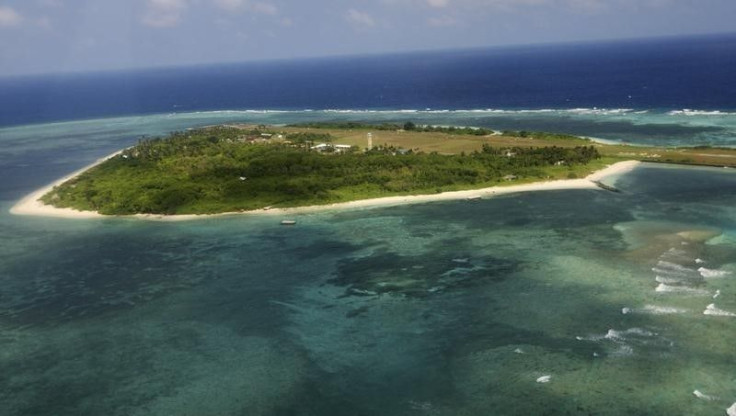Pag-asa Island Garrison Blockade Feared As 100 Chinese Boats Seen Around Island

A tweet from Philippine Foreign Secretary Teodoro Locsin that said “Diplomatic protest fired off,” coming moments after a press briefing held by National Security Adviser Hermogenes Esperon, Jr., captures the Philippines' worry about a new confrontation with China over a disputed island in the South China Sea.
In his briefing, Esperon advised that diplomatic action be taken to deal with over 100 Chinese vessels lurking in the waters off Pag-asa, one of the disputed Spratly Islands in the South China Sea where a garrison of marines is maintained by the Philippines. The island is also known as Thitu and is one of the larger islands in the island group. It is approximately 500 kms from Palawan, the governing province of the island.
Esperon said that his information indicated that the Chinese intentions might be to thwart other supply vessels from reaching Kalayaan and Ayungin Shoal, a submerged feature in the Pag-asa chain where the Philippine garrison is stationed.
This marks the second time in recent months that the Philippines have protested the Chinese presence in the area. In April, over 200 Chinese boats swarmed the island. Since then the number of observed vessels has varied. In early June the number had dropped to 18. Later that month, the Palawan News reports 50 Chinese vessels. The current influx began a few weeks ago, with the most recent count of 113 reported by the Philippine Navy.
Due to bad weather or in anticipation of the diplomatic protest, most of the Chinese vessels had left the area by Tuesday, leaving only three fishing boats and a coast guard ship.
The continued quarrel between the two countries is caused by the conflicting claims each has over the South China Sea waters. China has the more historical claim with the Nine Dash Line, a U-shaped demarcation line that covers the bulk of the South China Sea. The line first appeared in the late 1940s on a map published by the Chinese government. In 2016 a United Nations arbitration ruled that within the Exclusive Economic Zone (EEZ) of the Philippines, China had no legal basis to claim "historic rights" within its Nine-Dash line.
The Spratly Islands are located almost exactly in the center of the South China Sea. Other countries aside from China and the Philippines have an interest in them as well, including Taiwan, Malaysia, Brunei and Vietnam. They all stake claims based on EEZs or historical claims. China’s Nine Dash Line includes the entire island chain.
Senior Associate Justice Antonio Carpio advised that the protests continue and told reporters, “Otherwise it’s an implied admission that we allow them to do that and we should not allow that.
© Copyright IBTimes 2024. All rights reserved.





















